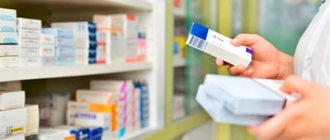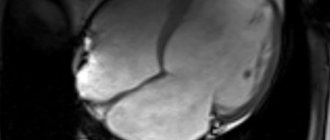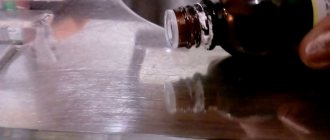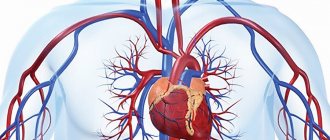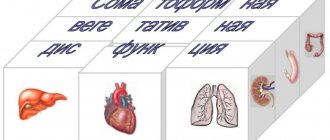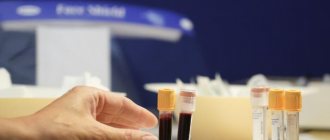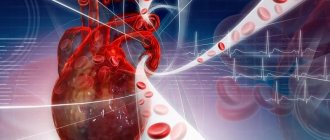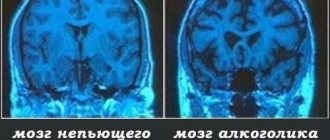Consequences of drinking alcohol for hypertension and angina pectoris
Anticipating the indignation of patients who have experience of the “successful compatibility” of alcohol with antihypertensive pills (and such cases are known to medical practice), it is worth warning them against hasty conclusions. The apparent compatibility of Bisoprolol tablets and alcohol can be called a time bomb, which will inevitably explode sooner or later.
To be more convincing, let’s look at how alcohol affects the course of hypertension and angina.
- In a person who has consumed an alcoholic drink, the blood vessels first dilate, facilitating a more active flow of blood to the brain. However, as alcohol is eliminated from the body, the blood vessels begin to narrow, and more intensely than it was before drinking alcohol. As a result, a person who takes an extra dose in the evening may experience a hypertensive crisis in the morning.
- Hypertension is one of the main risk factors for the development of angina pectoris, an atherosclerotic lesion of the arteries that prevents the flow of blood to the heart muscle. Therefore, if heavy drinking of alcohol provokes hypertension, then it inevitably provokes angina.
- The cardiotoxic effects of alcohol have been proven, especially in relation to the coronary vessels.
- Ethanol contained in alcoholic beverages affects metabolic processes, especially those occurring in the liver during the metabolism of drugs, which affects the course of hypertension and angina and significantly reduces the effectiveness of therapy.
Studies over recent decades show that complete abstinence from alcoholic beverages leads to a stable reduction in blood pressure by 7–8 mmHg. Art.
Some cardiologists believe that abrupt cessation of alcohol in a person who has been accustomed to drinking for a long time and regularly increases the risk of developing vascular accidents. Experts with this point of view have grounds for such statements, taken from medical practice. Therefore, they recommend that drinkers give up alcohol gradually, increasing the dose of alcohol taken to 30 ml no more than twice a week.
Does this mean that the compatibility of Bisoprolol tablets and alcohol is positive? Let's return to the instructions and once again remember the properties of this drug.
When can you take the medicine?
The drug is taken in the morning on an empty stomach or during breakfast. Take the tablets with drinking water only, without chewing.
If you can’t avoid drinking alcohol, then you need to remember how long it takes to take the medicine without a high risk of developing complications.
The tablets are taken at least 6 hours after drinking alcohol. If you drink the drug not with water, but with ethanol, the therapeutic result will be replaced by dangerous side effects.
Features of the drug, compatibility with alcohol
You can find quite a large number of positive reviews about the drug, which once again proves the effectiveness of bisoprolol. For many people, it literally saves their lives due to serious heart pathologies.
- Pain in the chest area;
- Tendency to fatigue and drowsiness;
- Nightmares;
- Pain and dizziness;
- Convulsions;
- constipation or upset stomach;
- Vomiting or severe nausea;
- Development of diabetes mellitus;
- Loss of consciousness;
- Double vision;
- Skin itching;
- Swelling of the sinuses;
- Insomnia;
- Visual and hearing impairment;
- Conjunctivitis;
- Violation of potency;
- Hallucinations and more.
During treatment, the patient must constantly measure his own pulse. If it is lower than 50 beats per minute, you should immediately inform your doctor. In the first days of taking the pills, you need to monitor your blood pressure. It is also recommended to do an electrocardiogram once every 1-2 months. It is recommended that older people have their kidney function checked approximately once every six months.
Bisoprolol affects concentration, so people who drive a car or work with complex mechanisms need to do this with caution and once again try not to overload their body. . Due to the fact that for many people the course of treatment with bisoprolol is delayed for long periods, and in some cases for life, patients have a question about the possibility of drinking alcohol
Reviews on the Internet on this matter differ radically.
Due to the fact that for many people the course of treatment with bisoprolol is delayed for long periods, and in some cases for life, patients have a question about the possibility of drinking alcohol. Reviews on the Internet on this matter differ radically.
All doctors have a clear answer to this question: bisoprolol and alcoholic beverages cannot be combined. The explanation for this is that when any drug interacts with alcohol, two outcomes are possible: a change in the effect of the drug and a change in the effect of the alcohol.
The first option is more dangerous to the patient's health. After all, ethyl alcohol can strengthen, weaken, or radically change the effect of the medicine. It is difficult to say which of these outcomes will be more easily tolerated by a person, just as it is impossible to predict exactly what result he will get by drinking alcohol while being treated with bisoprolol.
The main function of this medicine is to normalize blood pressure and heartbeat. If one of them falls or rises strongly, this threatens the patient with death. After all, if bisoprolol was prescribed, it means that not everything is in order with the cardiovascular system, and you shouldn’t joke about it.
In addition, alcohol increases the risk of side effects from the medication. It is unlikely that anyone will want to get at least one of the above.
The medicine changes the effect of alcohol in terms of preventing it from breaking down completely (to water and carbon dioxide) and leaving the body normally. Instead, the decomposition process stops at the acetaldehyde stage, and poisoning with this substance occurs. Symptoms of poisoning are signs of a hangover, multiplied several times (dizziness, severe excitability or slowness of reaction, nausea, vomiting, impaired coordination of movements, double vision and others). Judging by reviews on the Internet, this outcome of combining alcohol with the drug occurs in real life.
For the normal functioning of the heart and blood vessels, it is very important to lead an active lifestyle. Short (at least half an hour) walks before bed will be very useful.
This will train the cardiovascular system and set the person up for healthy sleep, which is also very important for health. Bisoprolol is an effective drug in the fight against high blood pressure and ischemia. Reviews about the combination of the drug with alcohol indicate their incompatibility. Doctors think the same thing: these two substances cannot be taken together. After all, the price to pay could be your own life.
Brief characteristics of the substance
This is a beta blocker, which is prescribed for hypertension and ischemia of the heart muscle. The drug has a gentle but effective effect, as it acts at different stages of the heart cycle.
The popularity of the medicine is high because a third of adults on the planet suffer from pathologically high blood pressure. Among older people, this figure is several times higher.
The drug restores the pulse to normal, improves blood circulation in organs and tissue structures. In addition to reducing pressure, the substance reduces the amount of oxygen required for full functioning.
The antihypertensive effect consists of normalizing the minute amount of blood ejected by the heart into the pulmonary artery or aorta during contraction.
The remedy also fights arrhythmia, as it improves heartbeat and reduces the nervous system’s susceptibility to stress. However, you should not take the substance during mental stress, the need to concentrate, or driving a car.
https://myweak.ru/alkogolizm/lekarstva/bisoprolol-sovmestimost.html
Preparations Valz and Concor
Active substance of drugs
The active substance of Concor is bisoprolol, a selective beta-blocker, and Valza is valsartan, an angiotensin II receptor blocker. Bisoprolol reduces the level of plasma renin activity and reduces the amount of oxygen required by the myocardium. The heart rate decreases both at rest and during exercise. Valsartan has a hypotensive effect on the body (i.e., lowers blood pressure), while no negative effects on cholesterol, glucose or uric acid levels were observed.
Indications
"Valz" will help avoid complications after a heart attack.
"Concor" is taken for arterial hypertension, manifestations of heart failure, and in case of stable angina. As for Valz, it is also quite effective for the above-mentioned diseases (heart failure, arterial hypertension). In addition, if you use Valz during the treatment of myocardial infarction, you can reduce the risk of complications.
Dosage
The dosage of medications must be discussed with your doctor individually. Both medications should be taken orally once a day, preferably in the morning. The recommended maximum dose for Concor is 20 mg/day, for Valz - 80 mg, but if this dose does not contribute to the desired improvement, it can be increased to 160 mg.
Thesis No. 1: Alcohol is incompatible with any antibiotics
Status: Myth
Indeed, a number of antimicrobial agents block acetaldehydrogenase, delaying the enzymatic biotransformation of ethanol at the stage of extremely toxic acetaldehyde. Its accumulation in the body contributes to the development of intoxication, which is accompanied by severe sensations. In fact, these drugs work in the same way as the famous disulfiram, used to treat alcohol addiction, which simply causes poisoning of the body. Its typical symptoms are difficulty breathing, tachycardia, nausea and vomiting, low blood pressure, fever or chills.
However, only a few antimicrobial drugs act in this way, in particular: cefamandole, cefoperazone, chloramphenicol, griseofulvin, isoniazid, metronidazole, ornidazole, nitrofurantoin and sulfamethoxazole.
All other antimicrobials do not have strict restrictions when combined with ethanol, but this does not mean that their combination helps to effectively fight infection.
My heart is beating fast with a hangover. What will help
If your heart is beating strongly due to a hangover, then you can take potassium chloride and magnesium - just not at the same time, but an hour apart. Dilute the contents of the ampoule in half a glass of water and take it orally in the morning and evening for 3-4 days.
With weak ventricular tachycardia, mild sedatives can help: valerian, motherwort, mint, sedative herbal mixtures from the pharmacy.
In fact, it's rare to have a hangover without an increased heart rate. This is a consequence of hangover hypersympathicotonia. If your heart is beating fast with a hangover, this is the result of catecholamines, potassium and magnesium deficiency, the cardiotoxic effects of aldehydes and ketones, as well as autonomic imbalance.
Bisoprolol and hangover
The drug blocks the complete breakdown of alcohol, stopping the process at the level of acetaldehyde. It is this substance that plays a dominant role in the occurrence of a hangover. Consequently, the intoxication of the body increases many times when the drug and ethanol are combined, and a long and severe trace reaction occurs.
During this period, even the help of a surgeon may be required, since side effects caused by the combined use of drugs cannot be treated with therapeutic methods.
In such cases, carry out:
- Coronary artery bypass grafting to restore blood supply to the myocardium.
- Balloon angioplasty – expansion of a narrowed vessel.
- Vascular plastic surgery of the valve apparatus.
Important! It is impossible to take alcohol and Bisoprolol lightly during a hangover: it is during this period that the formation of varicose veins of the heart may begin, accompanied by acrocyanosis, convulsions, hypoglycemia, and bronchospasm. .
It's clear. The combined use of alcohol and Bisoprolol is strictly prohibited. This is confirmed by patient reviews. At the same time, there are also preventive measures that can normalize the action of the cardiovascular system. This should not be forgotten. It is necessary to lead an active lifestyle, walk more, not overeat, master an atherogenic nutrition profile (with limited fat), give up bad habits, try not to worry in vain, and the work of the heart will be uninterrupted.
Important! Heart diseases and their treatment with Bisoprolol are allowed in force majeure situations, the consumption of alcoholic beverages in an amount of no more than 50g. Such a dose (a glass of wine) will not disturb the heart rhythm or affect blood vessels. In any case, this is better than skipping a dose of the drug, since its withdrawal syndrome is fraught with much more serious consequences.
Use for intoxication
The drug prevents the complete breakdown of ethyl. As a result, acetaldehyde is formed, which is responsible for the appearance of a hangover. Because of this, the combination of the drug with alcohol greatly increases the level of intoxication, which becomes severe and long-lasting.
Sometimes adverse reactions cannot be eliminated by therapeutic methods, as a result of which surgical intervention is required.
In this situation, the narrowed blood vessel is expanded using balloon angioplasty, the blood supply to the heart muscle is normalized by coronary artery bypass grafting, and the valve apparatus is restored.
It is during a hangover that the interaction of the drug with ethanol is dangerous for the development of seizures, varicose veins of the heart, bronchospasm, and hypoglycemia.
Related and recommended questions
Bisoprolol with alcohol Height 176, weight 81 kg. I’ve been taking Concor 5 mg for a month (there was an increase in…
Bisoprolol and alcohol I have ventricular ectosystole of 15,000 per day, while taking...
I feel bad after drinking a small amount of alcohol. I’ve been smoking since I was 15 years old, at first I drank...
Is 2-3 bottles of beer a day already alcoholism? I'm tormented by a question. My boyfriend…
Blood pressure medications and alcohol Are dibazole and papaverine compatible with low alcohol...
Increased heart rate I am 35 years old and a few months ago I experienced an increase in heart rate,…
The face and body turns red after drinking alcohol. Your consultation is needed, recently...
Arrhythmia and tachycardia after alcohol The problem is that sometimes after drinking beer...
Tachycardia at night after alcohol I wish you good health, dear doctor! Please tell me…
Compatibility of Nebilet with alcohol I have been taking Nebilet 5 mg for 2 weeks now. By appointment...
Beer and a healthy lifestyle Dear doctors. I play sports, not professionally,...
Tachycardia and alcohol Doctor, please tell me if it is possible to drink once a week...
RFA of the heart My sister underwent RFA of the heart 3 weeks ago (extrasystole 27,000 per day,…
Alcohol makes me feel bad. Please help me figure out my situation regarding alcohol...
Is it possible to drink a little wine? I have high blood pressure and was prescribed to drink every day...
Bisoprolol and alcohol. Shortness of breath and lack of air I have a question: can I take this...
I wake up at night after drinking alcohol. I have this problem after even a small amount...
Flucanazole and beer My girlfriend and I were prescribed flucanazole 150 tablets, I should take...
Should I take bisoprolol? I want to consult about my mother. She is 73 years old,...
Hello, good night! Let me describe my condition a little...
Problematic consequences of combining drugs and alcoholic beverages
During the consumption of alcoholic beverages and the drug, the process of enlargement of venous type vessels, which are located near the heart, may begin. In this case, the patient experiences a decrease in cardiac output, he experiences acrocyanosis, convulsive manifestations, hypoglycemia and bronchial spasms.
In particularly severe situations, collapse occurs, that is, a sudden decrease in blood pressure, after which a coma occurs, and this may not end in the best way. If the very first symptoms of deterioration in health occur, the patient should immediately consult a doctor to undergo an examination and establish a therapeutic course.
If the patient is lying indoors, you will have to open the window for ventilation. You can also use a drug that will promote the normal functioning of the cardiac system. You can use:
How to protect yourself from unwanted consequences
Most Internet users who have tried the drug Bisoprolol leave positive reviews. For many, the drug helped get rid of long-standing ailments. Some reviews are also from qualified specialists who noted the effectiveness of the drug, its beneficial properties, as well as its versatility.
Quitting alcohol
The process of treating pathologies of the cardiovascular type can drag on for a very long time, but this does not indicate that it is impossible to completely recover from ailments with the help of medications. The patient is obliged to completely protect himself from consuming alcohol-containing products, smoking, and other bad habits. It is necessary to adhere to these rules both during the course of treatment therapy and after its implementation as a preventive measure. Since after not the best consequences for the body, even a small amount of alcohol can cause even more negative circumstances. For this reason, it is better to refrain from drinking alcohol as much as possible than to subject yourself to repeated treatment later.
The combination of alcoholic beverages and drugs can provoke not the best consequences for the human body. The negative impact of alcohol on the functioning of vital organs can increase significantly if you take medications at the same time.
It is important to always remember about your own health and try not to poison your body with substances that can lead to intoxication.
Thesis No. 8: If you have a hangover, you can take regular “cold powders”
Status: Myth
Anti-cold combination drugs contain several components, and at least two of them can interact with ethanol. Firstly, most drugs in this group contain paracetamol, sometimes in a dose of 1000 g. When it is combined with alcohol, the risk of hepatotoxic reactions increases. Secondly, many anti-cold combination drugs contain 1st generation antihistamine components. Alcohol can potentiate their depressant effect on the central nervous system, promoting the development of hypersedation and drowsiness [3]. Therefore, drugs from this group should not be recommended as remedies to relieve hangover symptoms.
Sources
- Alcohol-medication interactions. Alberta Health Services. – [Electronic resource] – URL: https://www.albertahealthservices.ca/assets/healthinfo/AddictionsSubstanceAbuse/hi-asa-beyond-abcs-a... (Access date 12/09/2019).
- Alcohol-medication interactions. Alberta Health Services. – [Electronic resource] – URL: https://www.albertahealthservices.ca/assets/healthinfo/AddictionsSubstanceAbuse/hi-asa-beyond-abcs-a... (Access date 12/09/2019).
- Green GA Understanding NSAIDs: from aspirin to COX-2 //Clinical cornerstone. 2001; 3 (5): 50–59.
- Weathermon R., Crabb DW Alcohol and medication interactions //Alcohol research. 1999; 23 (1): 40.
- Adams WL Interactions between alcohol and other drugs //International journal of the addictions. 1995; 30 (13–14): 1903–1923.
- Noureldin M. et al. Drug-alcohol interactions: a review of three therapeutic classes //US Pharm. 2010; 35 (11): 29–40.
- Moore AA, Whiteman EJ, Ward KT Risks of combined alcohol/medication use in older adults //The American journal of geriatric pharmacotherapy. 2007; 5 (1): 64–74.
- According to GRLS data as of December 12, 2019.
Can a combination of two substances not lead to negative developments?
If you do not drink alcohol while taking the drug, you can witness the following consequences:
- The appearance of an antihypertensive effect (the minute volume of blood decreases).
- The occurrence of an antianginal type effect (the frequency of heart contractions decreases, the level of demand of the cardiac system for a certain volume of oxygen decreases).
- Antiarrhythmic type effect (removal of tachycardia, additional excitability, as well as increased activity of the nervous system, reduction of the required pressure).
Hypertension is manifested by a constant increase in blood pressure. A high level is one that exceeds 140 to 190 mmHg. This disease is considered very common; it can usually be observed in 50% of elderly people. The most popular factor that can lead to the occurrence of this type of deviation is heredity. In addition to this reason, there is also smoking or alcohol addiction, frequent consumption of junk food, low mobility, large amounts of salts accumulating in different parts of the body, and the occurrence of stressful situations in large quantities.
Cardiac ischemia
Ischemia is already a more dangerous pathology. This disease is called a problem of the 21st century among doctors. A disease of this nature can cause death. It appears when the heart stops consuming the required amount of oxygen. Ischemia appears for 2 reasons: myocardial infarction and regular angina manifestations (acute burning pain in the chest area, which falls on the left side of the body).
In any case, you must immediately seek medical attention from a doctor to receive treatment. Prescribing therapy always requires an individual approach, so before the doctor prescribes medications and dosages, he will definitely conduct a detailed analysis of the characteristics of the patient’s body. Due to the fact that the drug penetrates into the gastrointestinal tract in large quantities, its use will not be associated with the main diet. The use of the drug Bisoprolol is carried out either before or after meals.
The drug is distributed in tablet form. The drug should be taken without chewing, washed down with plain water.
During therapy, the patient should measure his own pulse on a regular basis. If the indicator is less than 50 beats/min, you will have to immediately discuss this situation with your doctor. Initially, while using the drug, it is necessary to carefully monitor blood pressure. It is also necessary to conduct an electronic cardiogram once every one or two months. Elderly people should have their kidney function checked at least once every six months.
The drug Bisoprolol has a serious effect on concentration, which is why people driving a vehicle or working with various mechanical structures need to take it with extreme caution, trying not to strain themselves too much. The main function of this drug is to normalize blood pressure and heart rate.
Pharmacology of Bisoprolol mechanism of action
The drug changes the effect of alcohol, preventing the second one from breaking down completely (to the state of water and carbon dioxide). Therefore, the components of the substance are not able to leave the body normally.
In this regard, the decay procedure is completed and poisoning occurs under the influence of this element. The main symptoms of intoxication may include signs of a severe hangover.
In order for the heart system to function normally, it is necessary to move more often and adhere to proper nutrition. Bisoprolol is a highly effective remedy that copes well with high blood pressure and symptoms of ischemia.
For the normal functioning of the heart and blood vessels, it is very important to lead a healthy lifestyle. Short walks before bed are very beneficial
This trains the cardiovascular system and sets a person up for healthy sleep. This is very important for health.
Thesis #3: Alcohol should be avoided during treatment with antidepressants.
Status: True
It is not recommended to combine alcohol with all antidepressants, although the mechanism of drug-ethanol-drug interaction and the severity of the consequences vary. Thus, in combination with tricyclic blood pressure medications (amitriptyline, maprotiline), ethanol can contribute to hypersedation. It disrupts the metabolism of drugs of this group in the liver, which leads to an increase in their concentration in the blood. If, in addition, the alcohol consumer has a history of alcoholic liver disease, the risks increase even more, since in this case the breakdown of antidepressants slows down and, accordingly, their level in the bloodstream increases. Increasing the dose of tricyclic antidepressants in the blood, in turn, causes cardiac arrhythmias, convulsions, hallucinations and other severe consequences, including coma [3].
The combination of selective serotonin reuptake inhibitors and alcohol is much less dangerous. Drugs in this group generally have a higher safety profile than tricyclic antidepressants and are less likely to enter into drug interactions. However, despite the absence of documented reactions between them and ethanol, their use in combination is still not recommended. This is largely due to the fact that combining SSRIs with alcohol can exacerbate the disease [4]. In addition, it has been proven that when venlafaxine is combined with ethanol, memory and cognitive abilities may decrease [4].
Alcohol compatibility
The leaflet for the drug does not contain any direct contraindications regarding alcohol consumption. This means that drinking a small amount of alcohol simultaneously with Bisoprolol should not cause any negative consequences or drug (chemical) incompatibility.
Alcohol doses over 50-100 grams cause heart rhythm disturbances. Alcohol makes the treatment process ineffective and can cause disruption of the heart muscle. The instructions for the drug prohibit you from stopping or skipping the medication on your own. When treating with Bisoprolol, you should definitely consult with your doctor about the possibility of drinking alcohol. Possible contraindications from diseases of the heart or other organs, incompatibility with other medications taken.
The manufacturer provides the following information:
Bisoprolol does not affect the ability to drive vehicles, according to the results of a study in patients with coronary artery disease. However, due to individual reactions, the ability to drive vehicles or operate technically complex mechanisms may be impaired
Particular attention should be paid to this at the beginning of treatment, after changing the dose, and also when consuming alcohol at the same time.
Consequences of concomitant use
The main consequences of alcohol abuse come not from the medication, but from the cardiovascular system. This is a hypertensive crisis, the risk of developing angina pectoris, an increase or decrease in pressure, a change in pulse. The general negative toxic effects of alcohol reduce the effectiveness of treatment with Bisoprolol and drugs with similar effects. Dangerous consequences of regular alcohol consumption:
- Large doses of alcoholic beverages lead to severe dilation of blood vessels throughout the body, including in the brain. As alcohol is eliminated from the body, the blood vessels narrow, which can lead to a hypertensive crisis in the morning.
- Hypertension is one of the main risks for developing angina. Since regular consumption of large doses of alcohol leads to hypertension, angina pectoris also develops.
- The effect of ethanol on the liver and other digestive organs directly affects the metabolism of drugs and their effect on the body. Unpredictable effects are possible both from the drug and from treatment in general.
- The strong toxic effects of alcohol on the cardiovascular system have been proven. Coronary vessels are subjected to severe destructive effects.
These consequences call into question the entire effectiveness of further treatment. Large doses of alcohol thin the blood and increase blood pressure. Any vascular injuries in this condition lead to heavy bleeding, which is difficult to stop with standard medications.
For these reasons, when treating with Bisoprolol, alcohol consumption should be limited to 100 grams, or better yet, 50 grams of strong alcohol. Drinking alcohol is acceptable if there are no other medical contraindications. When using the drug once a day, the therapeutic effect lasts for 24 hours, and the half-life from the blood plasma is 12 hours. The manufacturer does not recommend skipping medication; you should consult with your doctor regarding the admissibility of treatment adjustments.
Rules for taking medications and alcohol
Drinking alcohol during treatment minimizes the clinical effect of therapy and creates a risk of developing complications of the disease.
If this cannot be avoided, follow the rules of behavior that will reduce the occurrence of negative consequences:
- Do not drink strong drinks (vodka, cognac, whiskey), choose dry wine (100-150 ml), beer (no more than 300 ml). Don't drink alcohol on an empty stomach.
- The interval between taking the medicine and alcohol should be at least 2 hours.
- To reduce the toxic effect, take medications that protect the liver (hepatoprotectors), pancreas (pancreatin), and stomach (antacids ─ Rennie, Almagel).
If a person takes antiviral medications for colds, anti-inflammatory drugs, alcohol in moderation does not pose a threat to the body.
Alcoholic drinks during treatment are strictly contraindicated in cases of liver cirrhosis, severe infectious diseases, and during a course of chemotherapy.
Indications for use
There are a lot of diseases of the cardiovascular system in reference books. All of them, with the possible exception of congenital ones, are the result of the negative impact of the environment and poor lifestyle choices.
This could be a bad environment, the pressure of the flow of the information environment, or a stressful environment. However, a healthy person is able to resist this influence.
The situation becomes more complicated when the course of the disease is accompanied by addictions. These include:
- alcohol and smoking;
- lack of food culture;
- inactive, sedentary activity;
- nervousness, inability to cope with mental and mental overload.
Bisoprolol is prescribed for the following diagnoses: arterial hypertension, heart failure, angina pectoris, arrhythmia.
Arterial hypertension is defined by observing a persistent increase in blood pressure over a long period of time. Elderly people, who experience irreversible changes in blood vessels with age, are especially susceptible to it.
However, 20-30% of young people have this disease. An increase in pressure occurs due to a narrowing of the patency of blood vessels. It can occur for various reasons: the accumulation of lipid deposits on the walls of blood vessels, vascular spasm due to drinking alcohol and after smoking a cigarette, as well as during stress.
In this case, the blood is unevenly distributed throughout the arteries, and internal blood flow is disrupted. Where the passage of blood is difficult, too much blood collects and it begins to put pressure on the walls of the vessel.
Heart failure syndrome is understood as a disorder of the heart due to insufficient blood supply to internal organs and tissues, which causes their periodic hypoxia.
If organs do not receive oxygen delivered by blood in the required volume for some time, then their partial necrosis occurs. This can happen if treatment is delayed or absent. Heart failure is usually a consequence of hypertension or a congenital disorder. There are two options for its manifestation: myocardial infarction and angina pectoris.
Attacks of angina are characterized by temporary acute burning pain in the chest. It has been established that its root cause is vascular atherosclerosis. Angina pectoris occurs when there is a discrepancy between the heart's need for blood and the actual volume of its inflow. Provoking factors are physical overload and extremely emotional stress.
A disruption in the rhythm, frequency and sequence of heartbeats is called arrhythmia. Its cardinal causes are angina, smoking, and heart failure.
Video on the topic
Briefly and informatively about the drug Bisoprolol: how long to take, mechanism of action, indications and contraindications:
Despite the contraindications and side effects, Bisoprolol is considered the most widely used drug for the treatment of cardiovascular diseases. This drug is an effective selective drug of the beta-blocker group and rarely causes adverse reactions; most patients tolerate it well and cope with their ailments. In questions about how much Bisoprolol can be taken, doctors take into account the course of a specific heart disease and the person’s state of health. Many patients who regularly took Bisoprolol lowered their blood pressure to normal levels, while others experienced a reduction in the frequency of angina attacks and symptoms of heart failure. The medicine does not affect the condition and function of bronchial smooth muscles, sugar levels and cholesterol levels in the blood. The drug significantly improves the patient’s quality of life and increases its duration.
Complications
Interaction with alcohol immediately causes the following side effects:
- painful sensations;
- increased sweating, drowsiness, fatigue, apathy;
- a sharp decrease in blood pressure;
- loss of consciousness, dizziness, double vision, migraine;
- convulsive contractions of the calf muscles;
- nausea with vomiting;
- itching of the skin, a sharp increase in blood sugar and insulin levels;
- depression, sleep disturbance;
- swelling of the nasal mucosa, sinusitis, rhinitis, conjunctivitis;
- impaired renal function;
- deterioration of a person’s reaction, decreased concentration;
- myopathy, arthritis;
- persistent decrease in heart rate, sometimes until the organ stops completely.
This combination also leads to the following dangerous complications:
- Extensive internal bleeding due to a bleeding disorder. Because of this, in addition to the heart, the organs of the gastrointestinal tract, brain, and skin are affected.
- Swelling, cell death, as a result of which the body ages faster, and degeneration of tissue structures occurs.
- Oxygen starvation. The affected brain is dangerous for stroke, paralysis, and death.
- Liver cirrhosis, toxic hepatitis. These incurable pathologies develop because detoxification is excluded when interacting with alcohol.
In addition, large doses of alcohol excessively dilate blood vessels, the narrowing of which causes a hypertensive crisis. Regular consumption of drinks with ethanol is dangerous for angina pectoris.
However, the most serious complications include stroke with myocardial infarction. These diseases require long-term therapy, lead to disability and often result in death.
